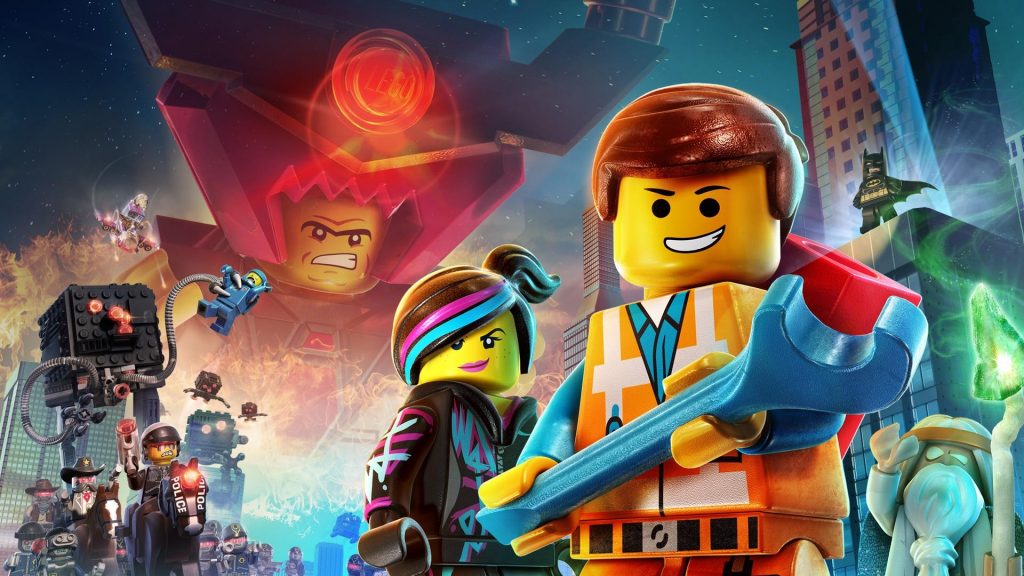
In the recent high-profile public relations battle between artist Ai Weiwei and Lego, significant attention has been directed to the toy behemoth’s rapidly growing business interests in China. Even with a sales growth rate of more than 50 percent in China last year, Lego’s profits are about far more than plastic bricks alone. In fact, Lego increasingly dependent on one industry that is especially known to be a regular target of Chinese censorship—film.
The world’s second-largest toymaker, Lego has defined China as a future “core market” for its continued growth as it pursues retail expansion in the country, and is currently building a major factory and distribution center in eastern China. But just a little over a decade ago, the global toy behemoth was facing significant revenue declines—until it launched a massive company overhaul that included significantly increased investment in linking its toy business to the movie business. In 2003, the company saw a $240 million operating loss, causing its leaders to embark on a turnaround plan in 2004 that included a growing number of product lines featuring licensed film characters over the next decade. Building on the success of its licensed Star Wars, Harry Potter, and Spiderman characters prior to 2004, the company added nine more entertainment licensing agreements, including Batman and Lord of the Rings. Expenditures on licensing have increased more than eightfold over the past decade, rising from about $33 million in 2004 to over $295 million last year.
Although the company’s CEO has said that licensing deals are “on a list of about 10 things” driving Lego’s growth, he has admitted that licensing deals now account for a third of the company’s total business, and its Star Wars line remains one of its all-time best sellers.
Last year, Lego doubled down on its film focus with the release of its very own blockbuster, The Lego Movie, which featured many of its franchised characters—such as Batman—and helped its full-year global revenue surge by 13 percent. The animated feature grossed more than $468 million worldwide, and the smash-hit blockbuster relied heavily on foreign audiences, with 45 percent of its total revenue coming from abroad. The success of the film was also credited as a source of growth for Lego’s toy sales, which fared much better than competitors such as Mattel, which continued to struggle to compete with video games for children’s attention.
Despite its global success—theatrical releases in more than 50 territories around the world, including Hong Kong, and the release of a Mandarin version on DVD and Blue-Ray—The Lego Movie never made it to what might have been its most lucrative foreign film market: China. Warner Bros. didn’t get the film approved by China’s notoriously strict film regulators for one of the limited quota slots available for major Hollywood studio releases, according to Lego Group’s CEO, even after overtures to China such as creating a special Chinese New Year greeting video. Despite the Lego Group’s stated apolitical stance, the film’s storyline about a group of revolutionaries plotting to overthrow a totalitarian overlord is not the type that generally goes over well with Chinese authorities—not to mention its message of freedom of creativity and expression.
With two more films in the works, the Lego brand will have at least a few more chances to vie for a coveted spot at the Chinese box office, with its best prospect coming from the upcoming Lego Ninjago film slated for September 2016, which is based on a Cartoon Network TV series featuring elements from both Chinese and Japanese mythology in a mashup of kung-fu and samurai styles acted out by Lego characters. The Ninjago film is planned to be released a full year ahead of a forthcoming Lego Movie sequel.
The Lego Movie has also boosted attendance at Legoland theme parks, according to Legoland owner Merlin Entertainments, and a great deal of media attention has recently been focused on the fact that a new Shanghai Legoland was one of the major deals to come out of Xi Jinping’s recent state visit to the United Kingdom.
The new theme park would stand to benefit if future Lego-themed films reach mainland Chinese movie theaters—and so would Lego’s parent company. London-listed Merlin is about 30 percent owned by Lego parent Kirkbi A/S, a privately held family company. Legoland is set to open its Shanghai park under a joint venture between Merlin and investment firm China Media Capital (CMC), which itself recently formed a joint venture with Warner Bros., the studio behind the Lego movie franchise. The cachet of a Lego film association would help the park compete with a host of movie-themed amusement parks set to open in the China market in the coming years from studios including Disney and Huayi Brothers. As the world’s second-largest visitor attraction company (after Disney) Merlin already runs five attractions in China and is planning on introducing several of its other brands to the country, including The Dungeons, DreamWorks Tours, and Kung Fu Panda Adventures.
The catchphrase “everything is awesome” was itself used satirically in The Lego Movie to poke fun at conformity and unquestioning obedience to authority—a theme that may have helped to get the film blocked from the Chinese box office. While it may not be possible to confirm exactly how the company’s growing exposure to China’s censors are impacting its business decisions, the Lego Group’s future in film, and the film industry’s future in China, mean that it will pay off to play by someone else’s rules.





